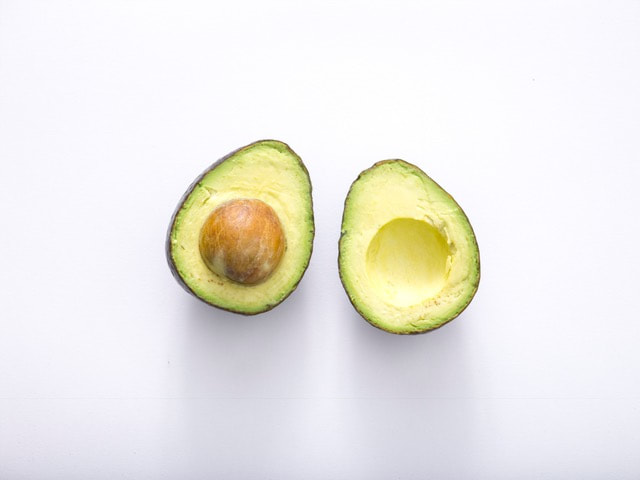Authored by Dr. Cassie Wilder
There is a lot of talk about high cholesterol being the ultimate risk factor for cardiovascular disease. While I think that having high amounts of cholesterol is not beneficial to your heart, I also want to talk about a different perspective.
What if it’s not the amount but the status of your cholesterol that is the most harmful?
An underutilized blood biomarker can potentially predict just how risky your cholesterol is and it’s called oxidized LDL. You may recognize LDL as the ‘bad cholesterol’ as its sent out by the liver to do all sorts of anti-inflammatory, hormone building tasks, while its counterpart HDL ‘good cholesterol’ is the scavenger that brings all those LDL’s home, removing them from the blood stream. Researchers are finding that LDL may not be inherently bad, meaning that if well taken care of, they can actually do their job correctly without contributing to heart disease. So how do you know if yours aren’t being well taken care of?
That's where OX-LDL comes in. When your LDL become oxidized (sort of like salmon becoming rancid and foul if you left it sitting on the counter all night) it makes your LDL become stickier and prone to plugging up your arteries. What types of things increase free radicals and cause your LDL to become oxidized?
You’re probably wondering how you would know if you have high levels of oxidized LDL. Well, some assumptions can be made based on how many diet and lifestyle risk factors you have that contribute to oxidation. However, the best way to know is to do blood testing. Once we have a numerical value on your OX-LDL, we can make a personalized plan just for you that takes into account all of your health history, family history, genetics, and lifestyle needs.
There are many ways that you can naturally deal with oxidative stress and you would guess, antioxidants are generally the treatment of choice. A few treatments that have been studied to decrease the number of OxLDL include vitamin C1, vitamin E2, and the Mediterranean Diet3! As a Naturopathic Doctor with a passion for heart health, I’ve found that it’s not always about just treating the oxidation status – a well designed treatment plan takes into account the whole person and helps you eliminate the cause of your free radicals. Whether that be help with smoking cessation, nutrition counseling, or correcting autoimmunity, you have to treat the whole person to achieve optimal heart health.
References
What if it’s not the amount but the status of your cholesterol that is the most harmful?
An underutilized blood biomarker can potentially predict just how risky your cholesterol is and it’s called oxidized LDL. You may recognize LDL as the ‘bad cholesterol’ as its sent out by the liver to do all sorts of anti-inflammatory, hormone building tasks, while its counterpart HDL ‘good cholesterol’ is the scavenger that brings all those LDL’s home, removing them from the blood stream. Researchers are finding that LDL may not be inherently bad, meaning that if well taken care of, they can actually do their job correctly without contributing to heart disease. So how do you know if yours aren’t being well taken care of?
That's where OX-LDL comes in. When your LDL become oxidized (sort of like salmon becoming rancid and foul if you left it sitting on the counter all night) it makes your LDL become stickier and prone to plugging up your arteries. What types of things increase free radicals and cause your LDL to become oxidized?
- Cigarette smoking
- Consumption of sugars or having blood sugar dysfunction, like type 2 diabetes
- Immune system activation (autoimmunity, chronic infections)
- Inflammation (i.e. from chronic pain, gut dysbiosis, ‘leaky gut’ and autoimmunity, amongst others)
- Stress (from cortisol excess)
You’re probably wondering how you would know if you have high levels of oxidized LDL. Well, some assumptions can be made based on how many diet and lifestyle risk factors you have that contribute to oxidation. However, the best way to know is to do blood testing. Once we have a numerical value on your OX-LDL, we can make a personalized plan just for you that takes into account all of your health history, family history, genetics, and lifestyle needs.
There are many ways that you can naturally deal with oxidative stress and you would guess, antioxidants are generally the treatment of choice. A few treatments that have been studied to decrease the number of OxLDL include vitamin C1, vitamin E2, and the Mediterranean Diet3! As a Naturopathic Doctor with a passion for heart health, I’ve found that it’s not always about just treating the oxidation status – a well designed treatment plan takes into account the whole person and helps you eliminate the cause of your free radicals. Whether that be help with smoking cessation, nutrition counseling, or correcting autoimmunity, you have to treat the whole person to achieve optimal heart health.
References
- Pancorbo D, Vazquez C, Fletcher M. Vitamin C-lipid metabolites: uptake and retention and effect on plasma C-reactive protein and oxidized LDL levels in healthy volunteers. Medical Science Monitor: International Medical Journal Of Experimental And Clinical Research [serial online]. November 2008;14(11):CR547-CR551. Available from: MEDLINE Complete, Ipswich, MA.
- Huang Z, Liang C, Han S, Wu Z. Vitamin E ameliorates ox-LDL-induced foam cells formation through modulating the activities of oxidative stress-induced NF-κB pathway. Molecular And Cellular Biochemistry [serial online]. April 2012;363(1-2):11-19. Available from: MEDLINE Complete, Ipswich, MA.
- Fito M, Guxens M, Corella D, et al. Effect of a traditional Mediterranean diet on lipoprotein oxidation. Arch Intern Med. 2007;167:1195-1203.


 RSS Feed
RSS Feed